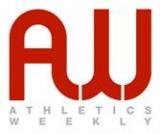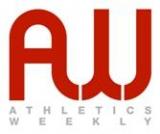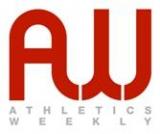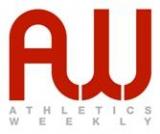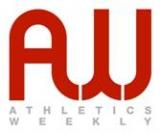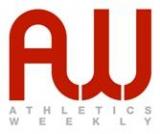Folders |
World Championships: DecathlonPublished by
Our World Championships analysis series continues with a look at the decathlonThe Olympic champion Daley Thompson had dominated the event over the previous four years, but suffering from groin and back injuries, he wasn t at his best for the inaugural Championships in Helsinki in 1983 and made a late decision to compete to take on world record-holder Jurgen Hingsen. A 10.60m 100m and 7.88m long jump gave the Briton a good lead and he ended the first day 120 points clear of the German. Thompson gained further points in the discus and pole vault and, though he lost ground in the last two events, he won by more than 100 points. Thompson returned in Rome in 1987 but had even more injury problems and, though he won the 100m, he had dropped to third overnight and faded on the second day to ninth. Hingsen dropped out on the first day and the clear winner was Thorsten Voss, who was only seventh in 1983. He took the lead after a 7.88m long jump and pulled away with consistent performances throughout. Siegfried Wentz, who was third in Finland, finished a clear second. In 1991 in Tokyo, Dan O Brien was a big favourite after going close to Thompson s world record in the US Championships and he went close again with a superb 8812. His marks included a 10.41 100m and 46.53 400m. He won by almost 300 points from Canada s Commonwealth champion Mike Smith and, but for a poor 1.91m high jump, which was 22cm down on his best, he would have easily broken the world record. Olympic champion Christian Schenk took bronze to continue the German medal run in the event. O Brien returned for Stuttgart in 1993 and upped his championship record to 8817 but was pushed by Belarus s Eduard Hamalainen, who finished 97 points down and set a decathlon 110m hurdles best of 13.57. German Paul Meier, who enjoyed 50,000-plus crowd support even on the first morning, had a great first day and was just four points down on day one and held on for bronze. In Gothenburg in 1995, O Brien won his third title despite being well below his best but did not take the lead until the high jump. He won by 200 points from Hamalainen with Smith finishing third. Briton Alex Kruger was 12th. O Brien decided not to go for a fourth title and the new champion in Athens in 1997 was Tomas Dvorak. Tenth and fifth in the previous championships, he continued his improvement with history s fourth best score of 8837. Second overnight on 4527, he took the lead with a PB 13.61m hurdles, though he dropped back in the discus and then trailed Hamalainen by 64 points after the pole vault. However, a 70.34m javelin PB gave him back the lead. He needed 4:27.13 in the 1500m to break the world record but fell short by more than seven seconds. Hamalainen took a third successive silver but this time in the colours of Finland. Dvorak broke the world record before Seville in 1999 and he easily retained his title with a modest 8744. The surprise silver medallist was Briton Dean Macey, who had improved his PB from 7480 in the World Juniors in 1996 to 8347 in May and then to 8556 in Spain. The 21-year-old ran a 46.72 400m to score 4546 overnight and then a 4:29.31 1500m took him past Chris Huffins in the final event. Roman Sebrle, who was ninth in Athens and failed to finish in Seville, set a world record of 9026 in 2001, but he was carrying an injury in Edmonton and could only finish 10th. The gold still went to the Czech Republic, though, as Dvorak was in sensational form. An 8.07m long jump and 16.57m shot gave him an early lead, but he lost it as Macey finished the day with a 2.15m high jump and then a 46.21 400m. Dvorak resumed control with a 13.80m hurdles and he went on win comfortably with a championship record 8902. Olympic champion Erki Nool, who had run 46.23 in the 400m, moved into a clear second with a 5.40m pole vault and scored 8815. Macey, hampered by a sore arm, finished third with 8603. In Paris in 2003, Tom Pappas, who had failed to finish in his one previous world championships in Seville, won a competitive event. Dmitriy Karpov of Kazakhstan led after the first day after four PBs and scored 4599 but he faded to third and 8374 as the American won by 100 points from Sebrle. Dvorak finished fourth. America won again in Helsinki 2005 with Bryan Clay gaining revenge on Sebrle after the pair s great duel in the Olympics. Clay started with a 10.43 100m and did especially well in the shot and discus with marks of 16.25m and 53.68m. Clay led after two events in Osaka in 2007 but pulled out injured on the first day. Sebrle was third before the javelin when he was more than 200 points behind Maurice Smith, but a 71.18m throw took 265 points out of the Jamaican and he won gold at his sixth attempt. Smith took silver and Karpov bronze. In Berlin in 2009 Trey Hardee started well with a 10.45 100m and then set 7.83m long jump and 15.33m shot PBs but was only third overnight on 4511 points. He then had a good beginning to the second day with a 13.86 hurdles and went into a lead he easily held on to despite losing well over 100 points with a 4:58.91 1500m. Cuban Leonel Suarez finished strongly, jumping up from sixth to second courtesy of a World Championships 75.19m javelin best. Fellow Cuban Yunior Dias set a 400m best of 46.15 and was second overnight but faded to ninth on the second day. In Daegu in 2011, American champion Ashton Eaton, who had been 18th in Berlin started as favourite and led overnight with 4446 points after a 46.99 400m. However, Hardee had a stronger second day and retained his title by 100 points. Eaton dropped back on the second day and was third behind Suarez before the 1500m, but a 4:18.94 1500m ensured an American one-two. Sebrle in his eighth appearance finished thirteenth. Hardee attempted to defend his title in Moscow in 2013, but no-heighted in the high jump, though he would probably not have challenged Olympic champion and world record-holder Eaton. Eaton started well with a 10.35 100m, though a poor high jump of 1.93m dropped him to third. He regained the lead overnight courtesy of a top-class 46.02 400m. A 13.72 110m hurdles pulled him well clear and he eventually won by 139 points with a world-leading 8809 as the other medallists, German Michael Schrader and Canadian Damian Warner, set PBs. DecathlonYear | Winner | Points | GB position and mark Points table (8 for 1st etc) Find other event-by-event history features here The post World Championships: Decathlon appeared first on Athletics Weekly. Read the full article at: www.athleticsweekly.com
More news |

